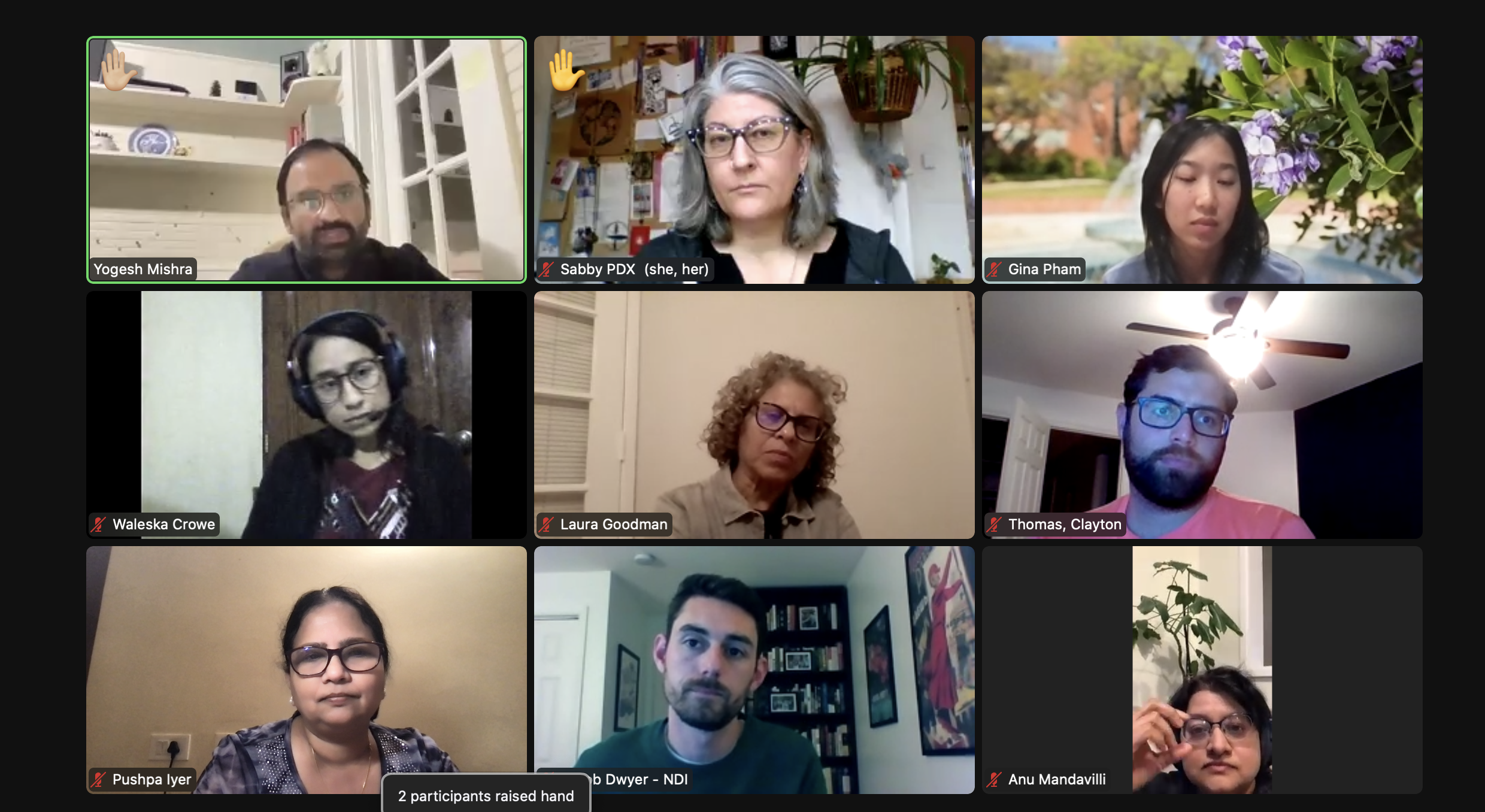WordView -Exploring the Origins of Fear
By Jacob Dwyer
Fear is one of the basic human emotions, but it has been at the forefront for many of us as of late. From the COVID pandemic to violent race-based attacks, recent global shifts, aided by the connectivity that social media offers, have elevated fear to a major part of many of our lives. However, in discussing the term in our WordView session, we realized that its ubiquity meant that all of us had not really delved into the nuances of fear. Below is a summary of our discussion.
When we think of fear, what do we think of?
Fear, just like all things, manifests for each of us differently. When asked to think of words or actions associated with fear, some stated fear was a loss of control. When you realize that you don’t have a grasp on what may happen to you next, it leads to fear. Some expanded on this further to include visualizing how the loss of control may manifest, leading to anxiety - a byproduct of this fear. In another offshoot of this idea someone mentioned how closely tied anger is to fear. When we recognize that we don’t have control, we may fight, resulting in anger or aggression. Expanding upon this we also saw how the reaction to “freeze” in response to danger can result in anxiety, and the response to “flee” can result in aloofness. All in all, we recognized how these reactions are all borne of fear in some way, as well as an attempt to regain control.
Why do we feel fear?
We recognized that there is an inherent reason to fear based around humanity’s natural instinct for self-preservation. We fear things that we believe will cause us harm or put us in danger. Fear extends past the individual, though. While there are individual fears, focused on preservation of safety and security, there are also ‘external’ fears - those focused on sense of belonging, sense of self-esteem, and our ability to be who we are. In referencing Maslow’s hierarchy of needs, we identified how our fears can fall into these two distinctions, with the individually focused fears evoking points of terror, horror and panic since our person is in danger; while the externally focused fears can sit with us for much longer, causing dread, anxiety, and nervousness.
Source: Atlas of Emotions
However, universal fears don’t exist. Yes, some people are afraid of heights while others are not. But one participant noted how the fear of death, which is prominent in American culture, is not a fear she shared. Because she grew up in a culture that believes in reincarnation and celebrates death, she knew what awaited her at the end of her life and, so, she didn’t fear it.
Is fear taught?
In thinking about why we feel fear, we began to think about the ways fear is taught to us. Girls are taught to avoid walking alone at night. We are taught to avoid certain parts of town at night. People of color are taught to code switch to fit white culture. Strangely enough, even fears toward dangerous animals like spiders and snakes are taught. Our elders use fear in order to protect us in these moments. But, they often simultaneously reinforce white colonial standards and systems. Either through their own experiences or witnessing others, our elders recognize the harm that can come in opposing white colonial institutions, systems and structures, so they teach us to not go against the status quo for our own good. With this in mind, we understood that viewing fear critically, just like all things taught to us, is an important tool for decolonizing ourselves.
How do you manage fear?
In thinking through how we may analyze our fears, we first had to determine ways to manage our fears. A commonality that rang true for our group was a reliance upon community, whether that be family, friends, or a group of like-minded individuals, did wonders for alleviating fears. Returning to Maslow’s hierarchy, knowing this one need is fulfilled has helped in moving forward despite the fear. Others recognized the importance of breathing, or taking a pause, to slow down the emotion.
Can we truly overcome fear?
Our discussion on managing fear led to the ultimate question - can we overcome it? One person mentioned how they used to be afraid of public speaking but that, through many experiences facilitating conversations and leading meetings, that fear had dissipated. The same can be said for fears borne of repeated acts of discrimination. If you have been the target of microaggressions for an extended period of time, you may develop a fear of certain situations, conversations, or groups based on the unknowns they may bring. By engaging in brave spaces, where people expose their perspectives, emotions, and intentions bravely to address racism, those marginalized can begin building new connections to balance out the harmful experiences.
However, we recognized that, when presented with unknowns, that twinge of that fear, although muted, can arise again. This ‘exposure therapy’ can help us become comfortable with certain environments, but, when thinking about discrimination and decolonization, the immensity of these structures means there will always be unknowns. While we can remove the constraints of colonialism and whiteness for ourselves, we don’t have the same agency for others, which means that leaving our self-created comfort zones can expose us to the fear, and possible anger, of others. As activist-practitioners, this is necessary in order to challenge the status quo. However, it is also a balance that we all must strike, as the fears of others, and the reactions they may hold, are far from disappearing.


